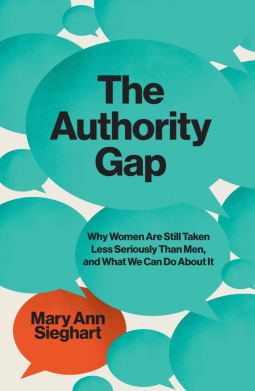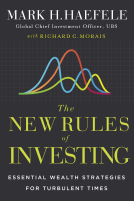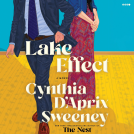
The Authority Gap
Why Women Are Still Taken Less Seriously Than Men, and What We Can Do About It
by Mary Ann Sieghart
This title was previously available on NetGalley and is now archived.
Send NetGalley books directly to your Kindle or Kindle app
1
To read on a Kindle or Kindle app, please add kindle@netgalley.com as an approved email address to receive files in your Amazon account. Click here for step-by-step instructions.
2
Also find your Kindle email address within your Amazon account, and enter it here.
Pub Date Feb 08 2022 | Archive Date Jan 31 2022
Talking about this book? Use #TheAuthorityGap #NetGalley. More hashtag tips!
Description
An incisive, intersectional look at the mother of all gender biases: a resistance to women’s authority and power.
Every woman has a story of being underestimated, ignored, challenged, or patronized in the workplace. Maybe she tried to speak up in a meeting, only to be talked over by male colleagues. Or a client addressed her male subordinate instead of her. Despite the progress we’ve made toward equality, we still fail, more often than we might realize, to take women as seriously as men.
In The Authority Gap, journalist Mary Ann Sieghart examines the wide-ranging implications of this critical gender bias. She explores its intersections with race and class biases and the measures we can take to bridge the gap. With precision and insight, she marshals a wealth of data from a variety of disciplines—including psychology, sociology, politics, and business—and interviews pioneering women like Booker Prize winner Bernardine Evaristo and Janet Yellen. The Authority Gap offers a “a credible roadmap that is capable of taking women from the margins to the center” (Mary McAleese, former president of Ireland).
About the Author: Mary Ann Sieghart is a London-based journalist and broadcaster who has worked for the Times, the Independent, the Economist, the Financial Times, and the BBC. She researched this book as a Visiting Fellow of All Souls College, University of Oxford.
Available Editions
| EDITION | Hardcover |
| ISBN | 9780393867756 |
| PRICE | $28.95 (USD) |
Average rating from 3 members
Featured Reviews
 E W P, Reviewer
E W P, Reviewer
As I was reading The Authority Gap, I was making a mental list of those to whom I will send a copy once it is published in the U.S. It is a long list. The book is validating, instructive, and infuriating. Validating to women who have experienced exactly the kind of skepticism and dismissal of their expertise described (these women include Angela Merkel, Christine Lagarde, Janet Yellen, and of course, Hillary Clinton). Instructive and infuriating because I learned of new ways and means by which gender discrimination is inculcated and enacted—the former in terms of what parents and teachers ingrain and perpetuate from childhood (in one study, parents estimate their male children’s IQ at 115 and their female children’s at 107, even when the girls are obviously smarter, in another, boys receive eight times as much classroom attention as girls), the latter mostly about losers who have nothing better to do than attack women on the internet solely because they express an opinion (as Laurie Penny observed, an opinion “is the short skirt of the internet”).
The book hits the bullseye over and over and over again. I was amused, gratified, and exasperated by the exquisitely accurate descriptions of male overconfidence (men overestimated “how interesting they were, how intelligent they were, [and] how much people liked them”) and how overconfident men—and sadly, others—confuse that confidence with actual competence.
The book is adroitly written and thoroughly researched, invoking studies of bias from every angle. Sieghart also undertook extensive interviews of women ranging from authorities in various academic and scientific disciplines to world leaders (who are authorities on many things, but who have nevertheless encountered breathtaking sexism from peers and underlings). Sieghart herself is an authority on politics and economics in the UK (a former columnist and assistant editor at the Times), and does not lack for examples from her own career of instances in which her expertise was seemingly incomprehensible to men.
The end of the book, though not the strongest part, is a list of things we all can do to improve the situation. The book is unlikely to convert internet trolls or the other vast swaths of men who perpetuate discrimination solely because they know (consciously or unconsciously) that they cannot maintain their privilege if they must compete with women who are their equals, let alone the many women who are more talented, accomplished, intelligent, and expert. Those men “want to silence women so that the world hears only from men.” But Sieghart gallops right past them and will inspire others to do so as well.
Readers who liked this book also liked:
Marie Bostwick
Historical Fiction, Literary Fiction, Women's Fiction
Rachel Joyce
Historical Fiction, Literary Fiction, Women's Fiction
James McBride
General Fiction (Adult), Historical Fiction, Literary Fiction
Mark Haefele; Richard C. Morais
Business, Leadership, Finance, Nonfiction (Adult)


















